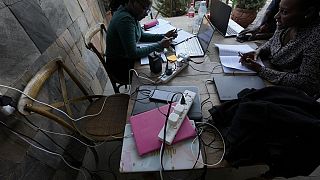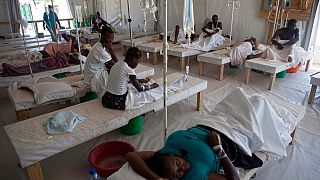Zambia
Dozens of Chinese nationals who had been held for illegal mining in Zambia have departed the African country to return home, China’s Foreign Ministry said on Wednesday.
China had complained that Zambia provided no strong evidence of crimes committed by the 31 arrested in the copperbelt town of Chingola, including a pregnant woman and two victims of malaria.
But Zambia’s immigration chief had told Zambian media the Chinese would have to be deported for violating the law.
“After repeated representations by China’s Foreign Ministry and its embassy in Zambia, on the afternoon of June 6, the 31 Chinese citizens that had been seized and detained boarded a plane and left Zambia smoothly to return home,” ministry spokeswoman Hua Chunying said.
In a letter, the 31 had expressed their “satisfaction” with the Chinese embassy’s efforts on their behalf, Hua told a regular news briefing.
Chinese companies have invested more than $1 billion in copper-rich Zambia, but there has been animosity, with some Zambian workers accusing firms of abuses and underpaying.
In 2012, Zambian miners killed a Chinese supervisor and seriously wounded another in a pay dispute at a coal mine. Zambian police charged two Chinese supervisors at the same coal mine with attempted murder two years earlier, after the shooting of 13 miners in a pay dispute.
Resource-hungry China is investing heavily in Africa, a supplier of oil and raw materials, such as copper and uranium, but critics have warned its companies take with them their poor track record on workers’ rights and environmental protection.
REUTERS












Go to video
Fugitive Zambian MP Emmanuel Jay Banda arrested in Zimbabwe after three-month Manhunt
Go to video
What to know about a standoff between police and illegal miners at a South Africa mine
Go to video
Trump confirms he will deploy the military for mass deportation plan
00:45
Ramaphosa calls for peaceful resolution to illegal miner standoff
Go to video
South Africa: Ramaphosa urges safe resolution in Stilfontein Mining standoff
Go to video
Trump and Africa: A new mandate, new uncertainties